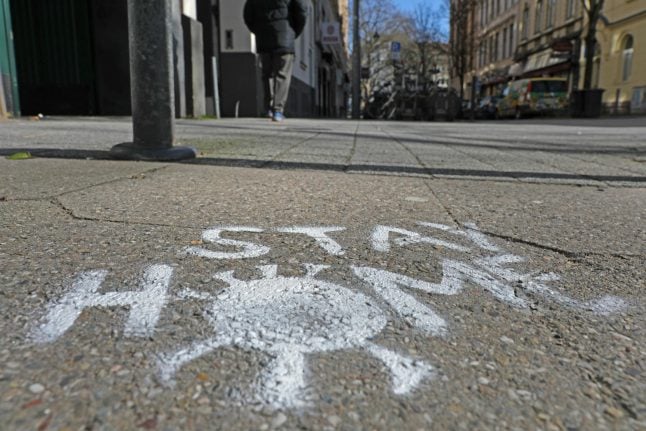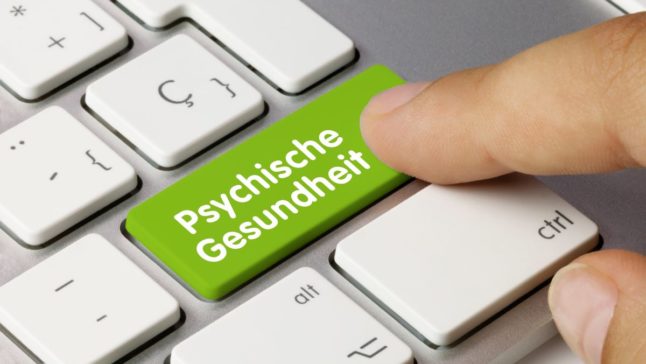Germany's Bundestag passed the massive rescue package in a bid to prop up the economy during the coronavirus pandemic.
And it's a historic day, as the government, led by Chancellor Angela Merkel who is currently in self-isolation after coming into contact with a doctor with coronavirus, will take on new debt for the first time since 2013.
The government will seek to borrow €156 billion this year, a sum that exceeds a constitutional limit by €100 billion.
MPs in the Bundestag (lower house of parliament) approved the package set to support hospitals, businesses and the livelihood of citizens, on Wednesday afternoon.
The package will now go to Germany's second house representing the federal states (the Bundesrat), with passage almost certain as state leaders have all unanimously voiced their support.
“There are hard weeks ahead of us,” said Finance Minister Olaf Scholz, who led the debate in place of Merkel. “We can overcome them if we show solidarity.”
READ ALSO: Germany plans €822 billion economic aid package to fight coronavirus crisis
Germany's unprecedented support package began racing through the legislative process the same day Republican and Democratic leaders in the United States Senate announced a deal on a never-before-seen $2 trillion relief programme for the world's top econom
In the Bundestag, Scholz thanked frontline workers like doctors, traders, bus drivers and others who keep public life going despite the risk of infection: “You are doing great things,” he said.
Germany has stopped short of implementing a nationwide lockdown seen in other countries such as France, Spain and Italy, but it has banned gatherings of more than two people and imposed stricter social distancing rules.
People in Germany are allowed to exercise outside and go to work, as well as shop for essential items – but they must maintain at least a 1.5 meter distance from other people.
That meant the Bundestag was laid out to accommodate these rules. MPs had to have two free spaces between them to allow for a safe distance.
READ ALSO: Germany plans €40 billion 'rescue package' for freelancers and small businesses
“Please keep in mind the rules on keeping your distance!” parliament president Wolfgang Schaeuble urged MPs between votes as they moved around the historic Berlin chamber.
Berlin will create an “economic stabilisation fund” offering €400 billion in guarantees for companies' debts, €100 billion for lending to or taking stakes in firms and €100 billion in support for state-owned investment bank KfW.
With its firepower tanked up by €357 billion, KfW will in future be able to guarantee some €822 billion in lending.
The federal government will offer smaller firms up to €50 billion of handouts.
 The Bundestag adopted social distancing on Wednesday. Photo: DPA
The Bundestag adopted social distancing on Wednesday. Photo: DPA
Wednesday's package also includes €3.5 billion of immediate support for supplying the health system with needed protective equipment and for developing a vaccine and other treatments, as well as €55 billion that can be freely deployed as needed to fight the pandemic.
'We must wait and see'
It came as the Robert Koch Institute (RKI) for public health said it was not yet able to tell whether the measures taken in Germany had been effective against the spread of coronavirus.
As of Wednesday morning there were more than 34,000 confirmed coronavirus cases in Germany, with more than 160 deaths.
READ ALSO: German government promises relief for renters amid coronavirus crisis
The number of cases and deaths have grown significantly in recent days. Cases in North Rhine-Westphalia (more than 9,400) as well as Bavaria with more than 6,300 and Baden-Württemberg (more than 6,000 cases) are particularly high.
“We must continue to wait and see whether the measures are effective,” said RKI President Lothar Wieler in Berlin.
On Monday, Wieler had said experts believed the exponential growth curve could be flattening out somewhat, but he did not want to evaluate this yet.
Wieler confirmed previous statements that Germany is still at the beginning of the spread of the coronavirus epidemic, saying it’s still not known “how this epidemic will develop,” he said.
READ ALSO: What's the latest on coronavirus in Germany and what do I need to know?
Germans support coronavirus measures
Meanwhile, a poll by Infratest Dimap for ARD Deutschlandtrend on Tuesday showed that nearly all Germans support the 'no contact' social measures aimed at stemming the spread of the virus.
According to the poll, a massive 95 percent of Germans are in favour of only meeting with people in their household or with another person over the next two weeks.
Meanwhile, 75 percent of Germans are satisfied with the crisis management by the federal government. Only five percent are not at all satisfied with it, and 18 percent are less satisfied.
The corona-crisis is also working in favour of Merkel’s Christian Democratic Union and its Bavarian sister party the Christian Social Union (CDU/CSU).
In an opinion poll by the Insa institute for Bild newspaper, the CDU/CSU gained five percentage points, landing at 33.5 percent.
READ ALSO: How can workers and businesses benefit from Germany's new aid package?
That's the best result for the party in the survey since the 2017 federal elections – and the highest increase the CDU/CSU has ever achieved in a week. The Social Democrats (SPD) only gained half a point to reach 15 percent.
States implement measures and aid
Several federal states on Tuesday also increased their economic aid to cushion the effects of the crisis.
Rhineland-Palatinate is providing a €3.3 billion package, the North Rhine-Westphalian state parliament unanimously adopted an aid package of €25 billion, and Bavarian state premier Markus Söder (CSU) announced that €20 billion would be made available in the budget.
Furthermore, it is now even easier to organise sick leave from work by calling a doctor, rather than visiting a surgery.
According to the National Association of Statutory Health Insurance Physicians, patients with mild respiratory diseases, such as a common cold, can now take sick leave for up to 14 days after consulting their doctor by telephone. Previously seven days was allowed.



 Please whitelist us to continue reading.
Please whitelist us to continue reading.
Member comments